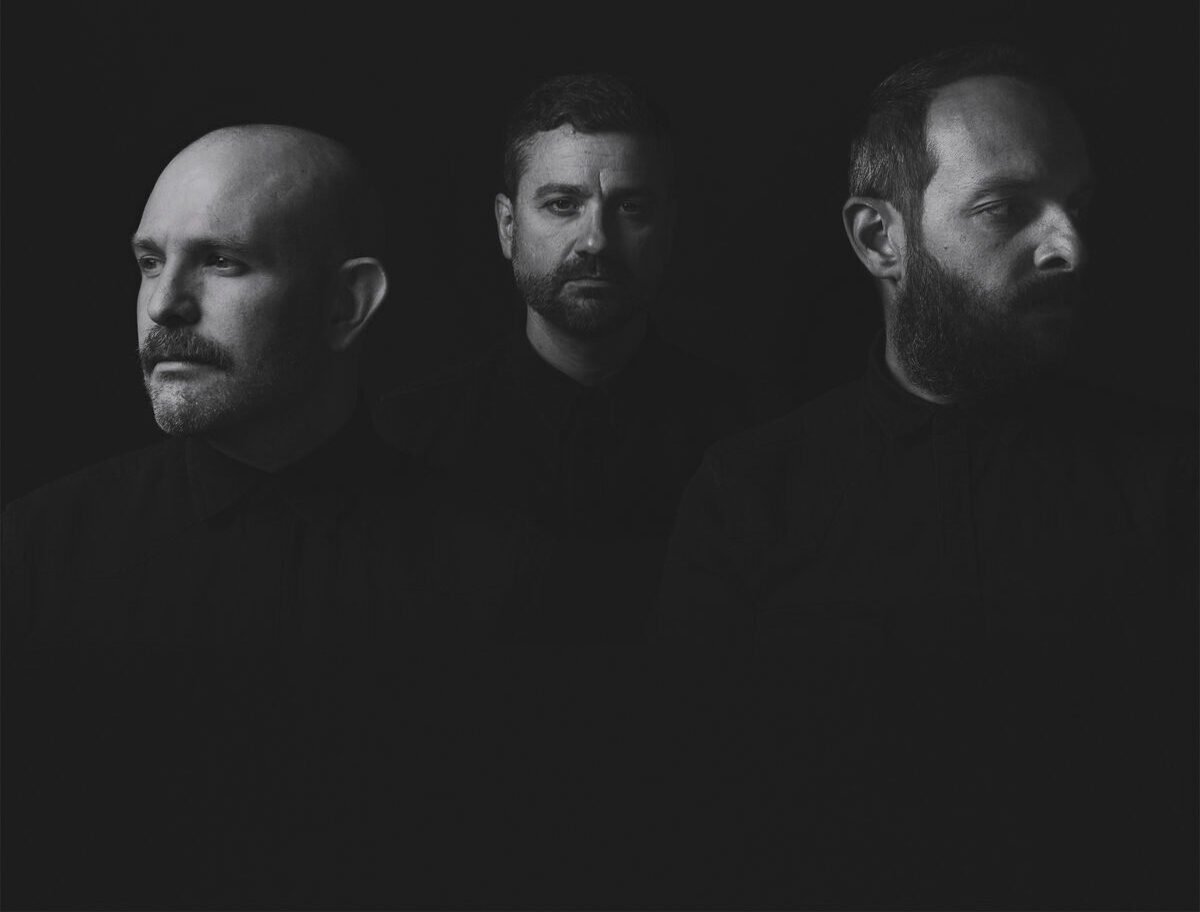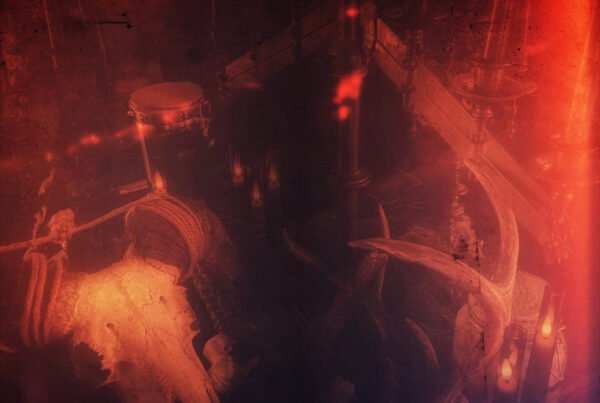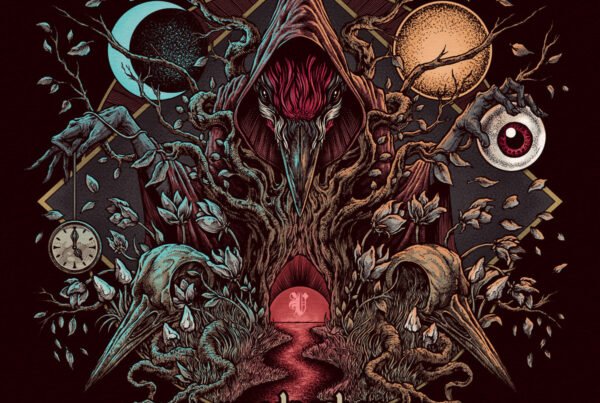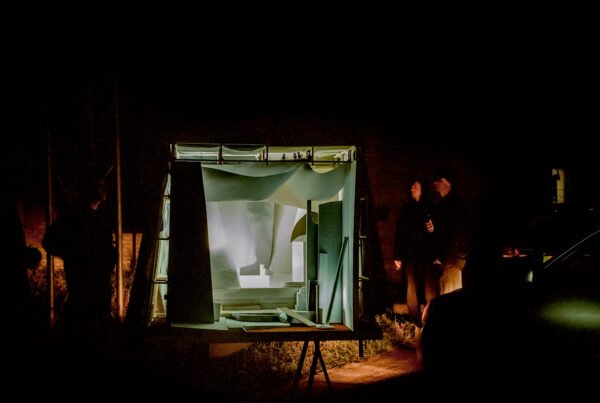Le Temps Du Loup‘s newest album Leteo is a colossal endeavour meant to elevate its listener’s spirits while lowering their blood pressure.
Release date: January 27, 2023 | dunk!records & Pundonor Records | Bandcamp | Facebook | Instagram
I’ve waited for a new Le Temps Du Loup since I first came across them and invited them to be our Weekly Featured Artist back in June 2020. While this instrumental post-metal/post-nada act from Madrid did put out an EP titled Enthraller in the summer of last year – and as excellent as it was – it just left me wanting for more. Well, it was soon after unveiled that there was a new album on the horizon, and due to life being rather hectic around the new year’s, I decided to sit it out and write about Leteo after it was out, to be able to fully immerse in it and explore it in detail.
As said, Leteo came out on January 27, and I’ve spent the last month-ish listening to it whenever I can. When I had the band over for the feature two and a half years ago, I already made note of how unique and pure their sound was, and how their general songwriting had a noticeably high standard despite the fact that back then they hadn’t put out more than an album and some EPs. Granted, Le Temps Du Loup was formed in 2010 and we’re not really talking about a young band anymore, it’s still rather significant how mature and all-encompassing they’ve compositionally and production-wise been since their inception. You know, it was one of those things where you get presented something new that is already whole and feels complete on all fronts, and it takes a moment to wrap your head around it to comprehend what you’re dealing with.
I didn’t really feel the need to revisit Le Temps Du Loup‘s earlier releases in preparation for the new one, as I pretty much knew each of them in and out thanks to their replay value and alluring dispositions. However, after my first pass of Leteo, I had to revisit its predecessors to determine where it sits on their discography, and to see how big of a leap forward it is to them – if being one at all. After going through all of it, the answer to that question is straightforward; Le Temps Du Loup have reached a new apex.
The band isn’t perhaps the most seminal, groundbreaking act to ever exist in their realm of music, but they do stand out in the contemporary scene for their own merit. I don’t think that the band represented an easy-access angle before, and Leteo only further solidifies that; it isn’t difficult per se, but requires your undivided attention and a proper headspace to get into. I myself at least noticed that whenever I put the album on, it was exceedingly hard to focus on anything else, and at some point I, for an example, had to consciously decide not to listen to it when driving to and from work, which during these busy days is the most ideal timing for me to listen to anything. High volume paired with a whole-body listening experience can get rather risky on four wheels, after all. An additional factor to that is that Leteo has a plethora of brilliant individual moments that you want to replay immediately, and of course that’s not something to do when trying to keep my hands on the wheel.
That mindset actually translates perfectly to the album, which thrives in momentum and motion. With the titular track acting as the ignition, Le Temps Du Loup wastes no time to unveil the running motor. With a percussive drum pulse, aerial guitar leads, and a strong bassline, the overhwelming atmosphere encapsulates the listener with ease, without letting go for a second during the following 40 minutes. As the opener that “Leteo” was subsides, “Sihaya” picks up with a firm stride that bounces between hefty post-metal bashing and more eclectic prog tendencies, the latter of which dictate the main tone of the album quite a bit, and is perhaps the easiest example to give about the band’s development for the new record. Being perhaps the most tonally unrestricted song of the bunch, “Sihaya” is an early peak for Leteo as an entirety.
“Dopo Tenebre, Spero La Luce” represents perfectly the kind of vibe that sets Le Temp Du Loup apart from many of their peers. This song in particular possesses the type of mood that feels very much like a signature for them. The colourful aural palette expands alongside a certain tension that never fully cedes, with the following track “Urd” further emphasizing that particular stance. The uncanny textures and constantly shifting instrumentation, alongside what might be the greatest crescendo on the album, make “Urd” stand out by having many of these individual amazing moments that I mentioned earlier. I could, of course, write down each section with given timestamps to underline all of them, but you, dear reader, should experience those on your own as a listener.
The last two tracks on Leteo are the most monolithic ones, with “The Bride of Belus” being the heaviest – though not the most straightforward – of the bunch, with its sludge-esque pummeling, while “T’oublier” provides a perfect backdrop for the album as its ten-minute closing epic that recounts compositional details and instrumental nooks showcased throughout the album. Again, both of these songs feature strong uniquity when compared to the others, yet somehow it’s all just so damn fluent and seamless. It’s now when you might, and probably should, notice why I early on praised Le Temps Du Loup about their newfound glorious ways; every single song and their particulars repeatedly makes me think how amazing an album Leteo is, and every time that I listen to it, each subsequent track somehow feels better than the preceding one, and that feeling abides from one rotation to another. At the end, Le Temps Du Loup have created a feedback loop that just keeps on habitually strengthening on each revision.
Utterly melancholic yet hopeful, the aforementioned momentum of Le Temps Du Loup‘s craft is constant as the cogs weave and wheel different types of often abstract yet hard-hitting outcomes from similar underlying sources, as Leteo takes a form of its own and becomes its own living and breathing organism, whose motions you follow as if it were a gracious giant rising from the ocean solely to take its righteous place to exist in this world and be witnessed by others.






